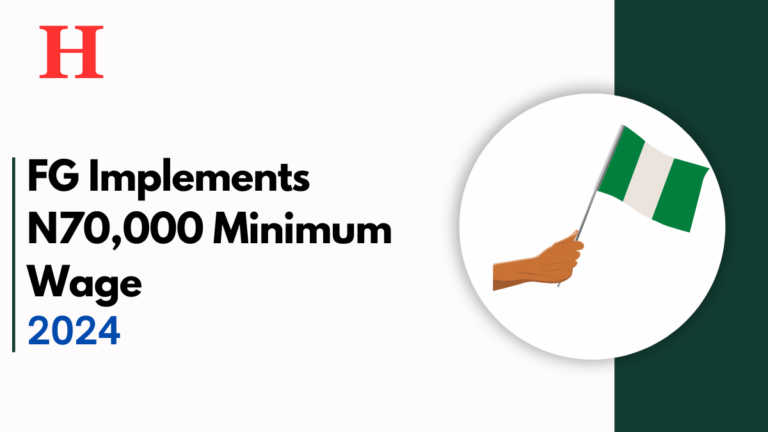The Nigeria Union of Pensioners (NUP) Southwest has voiced opposition, criticizing the Federal Government’s handling of the situation and expressing concerns about the recent hike in fuel prices. The private sector has also raised issues regarding compliance with the new wage and the potential strain on businesses.
The Federal Government of Nigeria has officially begun disbursing the newly established minimum wage of N70,000 to more than 1.2 million civil servants. This development comes after seven months of negotiations, during which adjustments to salaries across various levels of the federal civil service were discussed. However, not all parties are in agreement.
The federal government implemented the N70,000 minimum wage after prolonged negotiations that concluded with a decision to raise the minimum wage for public servants. The payment began on Thursday, affecting over 1.2 million civil servants, with the new wage reflected in the September 2024 salary. A warrant issued by the Accountant-General of the Federation, Dr. Oluwatoyin Madein, officially authorized the payments, directing the Budget Office of the Federation to facilitate the disbursement.
Breakdown of Salaries
Documents from the National Income, Salaries and Wages Commission provide a detailed breakdown of what civil servants will earn annually under the Consolidated Public Service Salary Structure :
The salary for each grade level is adjusted annually before promotions, with specific amounts allocated for each grade. For example, a Level 1, Step 2 public servant would earn N935,585 annually.
Confirmation of Payment and Coverage
The Director of Press at the Office of the Accountant-General of the Federation (OAGF), Bawa Mokwa, confirmed that the new minimum wage payment had commenced. An anonymous civil servant also verified that some employees had already received the updated salary. The payment covers 1,236,824 workers, including personnel from Ministries, Departments, and Agencies (MDAs), the Armed Forces, Paramilitary forces, Federal Universities, and Polytechnics and Colleges of Education.
Financial Impact and Approval
The new wage structure became official after President Bola Tinubu signed the minimum wage into law on July 29, 2024, following discussions with the Nigeria Labour Congress (NLC) and the Trade Union Congress (TUC). The Committee on Consequential Adjustments also finalized that the implementation date would be retroactive to July 29, 2024. The financial impact is significant, with the Federal Government expected to allocate N334.9 billion per month, translating to an annual wage bill of N4.019 trillion.

